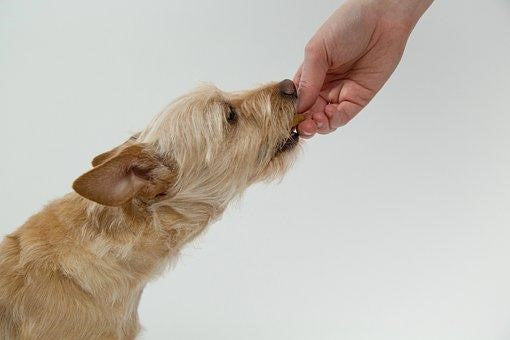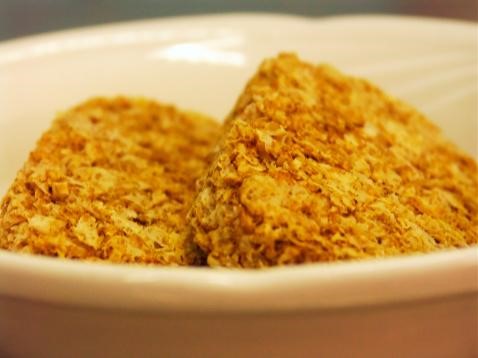
As a pet owner, it is natural to want to share everything with your furry friend, including food. However, not all human foods are safe for dogs to eat. Weetabix, a popular brand of breakfast cereal made from whole grain wheat, is often consumed by humans as a nutritious and filling breakfast option. But can dogs also benefit from eating Weetabix, or is it harmful to their health? Dogs are known for their love of food and their ability to eat almost anything they come across. In this article, we will explore the potential risks and benefits of feeding Weetabix to dogs, as well as provide some recommendations for safe and appropriate feeding.
What is Weetabix?
Weetabix is a brand of breakfast cereal made from whole grain wheat. It is a popular choice for a nutritious and filling breakfast, and is often consumed as a cereal with milk or used in recipes such as Weetabix cakes or Weetabix bars. It is known for being high in fiber and nutrients such as carbohydrates, protein, and B vitamins, and is available in a variety of flavors including Original, Chocolate, and Almond. Weetabix is made from whole wheat, which can be a healthy component of a dog's diet in moderation. Whole wheat is a good source of fiber and can help to promote healthy digestion. However, it is important to keep in mind that dogs have different nutritional needs than humans, and they may not be able to process certain foods in the same way that we can.
Can dogs eat Weetabix?
The short answer is yes, but with caution and moderation. Weetabix itself is not toxic to dogs, and it can provide some nutritional benefits. However, it should not be a primary source of nutrition or a substitute for a balanced commercial dog food. Weetabix is high in fiber and nutrients such as carbohydrates, protein, and B vitamins, which can support a healthy diet for dogs. However, it is also high in calories and fat, which can lead to weight gain if fed in excess.

Risk of feeding Weetabix to dogs
There are a few potential risks to consider when feeding Weetabix to dogs:
- Digestive issues: Weetabix is made from whole grain wheat, which can be difficult for some dogs to digest due to their sensitive stomachs. This can lead to digestive issues such as gas, bloating, and diarrhea.
- Allergies: Some dogs may be allergic or sensitive to wheat or other ingredients in Weetabix, which can cause allergic reactions such as skin irritation, vomiting, or diarrhea.
- Weight gain: Weetabix is high in calories and fat, which can lead to weight gain if fed in excess. This can be particularly risky for dogs who are overweight or prone to obesity.
- Nutritional imbalance: Weetabix should not be a primary source of nutrition for dogs, as it does not provide all of the essential nutrients that dogs need to maintain a healthy diet. Feeding Weetabix in excess can lead to a nutritional imbalance, which can have negative impacts on a dog's health.
It is important to note that these risks can be mitigated by feeding Weetabix in moderation and as an occasional treat, rather than a primary source of nutrition. It is also important to check the ingredient list on the Weetabix package to ensure there are no harmful additives, and to consult with a veterinarian before introducing any new foods to a dog's diet.
Additionally, while whole wheat can be beneficial for dogs, Weetabix is not a good choice for a dog's primary source of nutrition. This is because Weetabix is made with added sugar, which can be harmful to dogs in large amounts. Sugar can cause a number of health problems for dogs, including obesity, dental issues, and even pancreatitis. In addition to the added sugar, Weetabix also contains other ingredients that may not be safe for dogs to consume. For example, some varieties of Weetabix contain milk, which can be difficult for some dogs to digest. This can lead to digestive issues such as diarrhea and vomiting.

Considerations
First, it is important to understand that dogs have different dietary needs than humans, and not all human foods are safe for them to consume. Dogs are omnivorous, meaning they can derive nutrients from both plant and animal sources, but their primary source of nutrition should be a balanced and complete commercial dog food. Many human foods, including Weetabix, can be harmful to dogs due to their unique digestive systems and sensitivity to certain ingredients.
Another consideration is the size and breed of your dog. Smaller dogs may have a harder time digesting Weetabix due to their smaller digestive systems, and certain breeds may be more prone to wheat allergies or sensitivities. It is always a good idea to consult with your veterinarian before introducing any new foods to your dog's diet, especially if your dog has any pre-existing health conditions or sensitivities.
Concluding words
Weetabix can be a safe and nutritious treat for dogs when fed in moderation, but it should not be a primary source of nutrition. It is important to carefully consider the potential risks and benefits, and to always check the ingredient list for harmful additives. As with any new food, it is always best to consult with your veterinarian before introducing Weetabix to your dog's diet. While Weetabix may provide some nutritional benefits, it is important to ensure that your dog is receiving a balanced and complete commercial dog food as their primary source of nutrition. Likewise, it is not recommended for dogs to eat Weetabix due to the added sugar and potentially harmful ingredients it contains. While whole wheat can be a healthy component of a dog's diet, it is important for pet owners to be mindful of their dog's nutritional needs and stick to a balanced and nutritious diet. If you have any concerns about your dog's diet or health, it is always a good idea to consult with a veterinarian.
